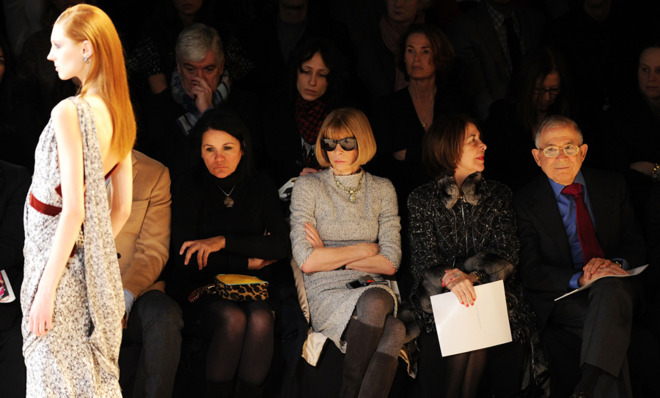Why are so many men trolling beauty sites?
Note to mansplainers: Women should be able to write about politics and shoes

A free daily email with the biggest news stories of the day – and the best features from TheWeek.com
You are now subscribed
Your newsletter sign-up was successful
Guardian beauty writer Sali Hughes recently addressed a type of harassment she gets from certain male readers, the sort who show up to tell her they like "'the natural look.'" Hughes got at the essential: "The personal preferences of men I don't know, who lack even basic manners in their dealings with others, are of absolutely no consequence to me and my face." She rightly attributes "the aggression directed at women who love beauty" — as in, beauty products or articles — to "misogyny," pointing out that men who love wine or rugby are not similarly condemned.
Thanks to the magic of internet-commenting, discussions about luminizers, or the merits of the Peter Pan collar, are now open to all. Rather than occupying whatever the online equivalent is of the proverbial boyfriends' chair at the mall, men gravitate to these conversations. These are not men looking to find out how to apply eyeliner, after however many years living with a repressed desire to do so. No, they're just garden-variety straight guys (or women — or mountain goats — presenting themselves as such online) who think fashion's silly, and are, as they say, just saying.
These men are far from the greatest menace online. No one, even in countries without the First Amendment, is likely to question men's right to join these public forums. Their comments are not overt harassment or threats of the kind Amanda Hess recently launched a conversation about. They're instead a more everyday mansplaining pattern of men coming to posts on women-oriented lifestyle subjects solely to point out that the topic itself is frivolous and, if applicable, not worthy of a serious publication. The conversation's clearly geared to women, but these men arrive to reframe it as one about their preferences.
The Week
Escape your echo chamber. Get the facts behind the news, plus analysis from multiple perspectives.

Sign up for The Week's Free Newsletters
From our morning news briefing to a weekly Good News Newsletter, get the best of The Week delivered directly to your inbox.
From our morning news briefing to a weekly Good News Newsletter, get the best of The Week delivered directly to your inbox.
This behavior is easiest to criticize when it involves men telling women to primp more. Yet typically, as Hughes suggests, the men who comment will have us know that they prefer natural beauty. No matter how many times women point out that this is nonsense; that men only notice women's makeup when it's garishly applied; or that men's desire to see "natural" beauty is about wanting unadorned supermodels, not ordinary women who've thrown away their tweezers, some men keep chiming in with the same tired argument: Men don't like makeup or runway-inspired fashion, so women are foolish for caring about it.
The obvious objection — that it's presumptuous to assume women dress for men — doesn't quite cover it. Many women do wear makeup and choose outfits in part to look more attractive to certain men. But rare is the woman who seeks to attract absolutely all men, or even as many men as possible. As Laurie Penny notes regarding her own short hair, a woman's beauty choices can effectively sort through the men a woman attracts, eliminating those a she wouldn't be interested in to begin with.
While Hughes was spot-on, I might have pushed the argument further still. These men's comments derail more useful critiques of the fashion and beauty industries. Fashion — not unlike sports — has its ethical limits. But the problem with $300 wrinkle creams or emaciated models is not that these do nothing for the male gaze.
But most importantly, every time female-oriented guilty pleasures are condemned, women are subtly excluded from the public sphere. Female journalists and bloggers who mix gendered-female fluffy content with more substantive coverage (sometimes of female-oriented topics, sometimes not) end up in effect placing themselves in a pink corner of the internet, limiting their careers and the reach of their ideas. Women’s writing ends up underrepresented in prominent publications due in part to editors viewing a man who writes about politics and sports as serious, but not a woman whose topics are politics and shoes. This sort of unconscious bias will only keep perpetuating itself until we become aware of it.
A free daily email with the biggest news stories of the day – and the best features from TheWeek.com
Phoebe Maltz Bovy is a writer living in Princeton, New Jersey. Her writing has appeared in The Atlantic, The New Inquiry, and The University of Chicago Magazine, among others. She has a doctorate in French and French Studies from New York University.
-
 Why are election experts taking Trump’s midterm threats seriously?
Why are election experts taking Trump’s midterm threats seriously?IN THE SPOTLIGHT As the president muses about polling place deployments and a centralized electoral system aimed at one-party control, lawmakers are taking this administration at its word
-
 ‘Restaurateurs have become millionaires’
‘Restaurateurs have become millionaires’Instant Opinion Opinion, comment and editorials of the day
-
 Earth is rapidly approaching a ‘hothouse’ trajectory of warming
Earth is rapidly approaching a ‘hothouse’ trajectory of warmingThe explainer It may become impossible to fix